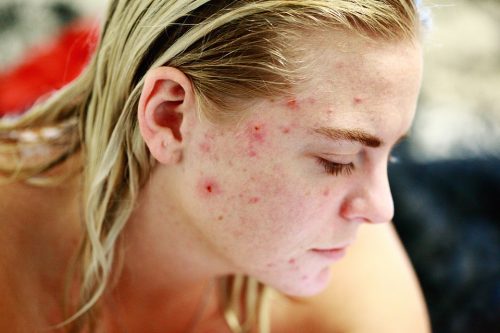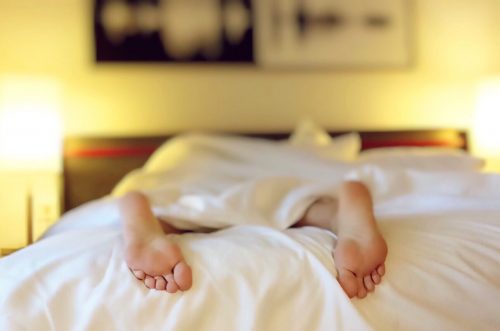
Acne is a widespread problem that is so devastating for some that people who suffer from it just want to keep their face hidden from the world. This skin disease, according to therapists and other mental health professionals, is more than just a problem of the skin – it’s more than skin deep. Acne can affect a person’s emotional and mental well being, as they may eventually develop anxiety, depression, a damaged self-image, low self-confidence, isolation, and low quality of living. “Acne is a disease of civilization which, like depression, has increased the last half century, especially in women.” Says psychiatrist Emily Deans, “In fact, patients with acne struggle more with mental health issues than even patients with epilepsy or diabetes, according to a study comparing questionnaires between sufferers of acne and other general medical conditions.” How can this skin condition, which only begins as a pimple and worsens into acne, worsen, and becomes a mental or emotional problem? Read my story below.
Not Much Happy College Memories
When my pimples grew on the face, I wished every night that it would just grow hundreds on my back! I could tolerate the itch and the heat just as long as it won’t show on my face. I would cry when I would see myself in the mirror, and those large cysts would increase every day. I struggled with this skin disease since I was in my sophomore year, and as the years went by, I felt that I was ‘cursed’ while I was in college feeling insecure and ugly.
After a year of following my mom to just wash my acne with soap and water (to no avail), I tried buying acne treatment creams that were available at stores. Still, nothing worked. So I went to see my aunt, who was a dermatologist. She recommended that I take antibiotics, which is the first regimen for someone with severe acne. It cleared only a few of my large pimples, even with injections applied on the worst of my cysts. I was so frustrated that I quit that semester and stayed home.
My family was so worried about me. I didn’t see any of my friends, only two of them, my best friends. I would cry to them, and they would comfort me, but they didn’t know what to do as well. We both knew crying wouldn’t cure my skin problem. According to Dr. Aisling O’Donnel “We know from previous research that many acne sufferers experience negative feelings about their condition, but we have never before been able to draw such a direct link between quality of life and perception of social stigma around acne.” I just watched television most of the day and eat my stress away with junk, which aggravated my acne. I felt so devastated, insecure, and alone.

Two months after, my mom convinced me to see my aunt again, and this time, she treated me with isotretinoin, a strong medication indicated for severe acne. It gave me hope when after two weeks, some of my pimples were gone. Sadly, my skin was discolored and scarred – for life.
When I went back to school the next semester, a friend of mine told me about cosmetic surgery. She, too, had suffered most of her life because of her acne, and when she decided to have surgery, she said it was the best decision she made. To cut the story short, I underwent surgery myself, and it was successful.
Therapy After Surgery
I was so happy to see my face after the surgery. It was very smooth and very clear, but it was the first time I ever saw a ‘normal’ appearance. I was overwhelmed, but deep inside, the negative emotions still lingered, hindering me from moving on as quickly as I could.
I sought the help of a therapist, who saw me twice a week to talk to me and who allowed me to open up about how I felt in the past and how I feel now. I told the therapist everything I could remember that led me to the person that I was before – I was bullied, laughed at, and rejected. “When you’re anxious or depressed,” Psychiatrist Josie Howard, MD says, “your interpretation of your skin can change drastically. All of the sudden that zit becomes a very big deal, which may lead to not going out to work or social events, and the avoidance of social activities can make anxiety and depression much worse.“ The therapist used some powerful tools to help me shift my unpleasant thoughts about myself and think of them as trials that I have somehow surpassed. She taught me how to control my feelings and not delve so deep that I would go into depression again.
I soon learned to manage myself emotionally, mentally, and physically, as I continued to see my dermatologist for some prescription meds to help maintain my skin. I visit my therapist only once a week because I think I still need help in building my self-confidence. I also want to learn more about coping mechanisms and other strategies that help improve my life as a whole.

Final Thoughts
Looking back, I can’t imagine myself sinking into depression because of very common skin disease, but it happened to me, and it can happen to you too. The best advice I can give is to have your acne seen by a dermatologist as soon as possible to prevent further complications. The longer your acne persists, the higher the likelihood of depression and negative emotions that could ruin your life. Don’t let acne stop you from living your life.